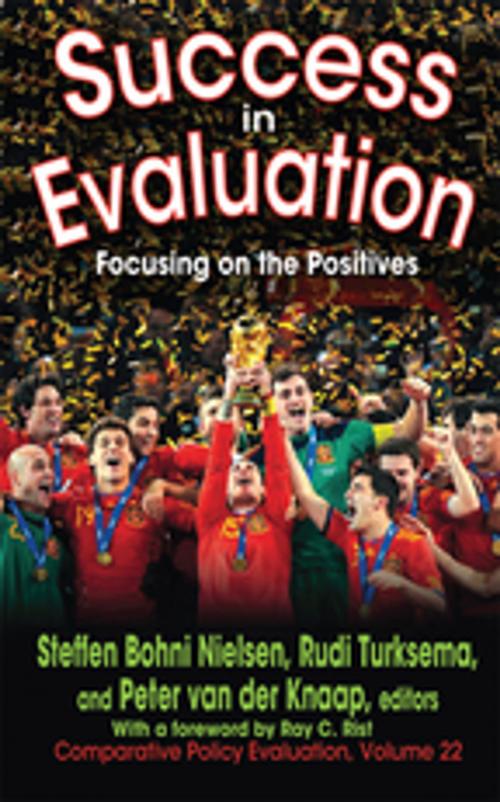Success in Evaluation
Focusing on the Positives
Business & Finance, Management & Leadership, Decision Making & Problem Solving| Author: | Rudi Turksema | ISBN: | 9781351487627 |
| Publisher: | Taylor and Francis | Publication: | September 8, 2017 |
| Imprint: | Routledge | Language: | English |
| Author: | Rudi Turksema |
| ISBN: | 9781351487627 |
| Publisher: | Taylor and Francis |
| Publication: | September 8, 2017 |
| Imprint: | Routledge |
| Language: | English |
Success in Evaluation takes a fundamentally different approach to the mainstream supply side discussion of evaluation quality, utilization, and learning. The contributors believe that a systematic focus on success will lead to increased awareness of evaluation and its findings, a more positive attitude, and a greater chance of actual evaluation use. This book offers many different lessons on how to improve evaluation design, research processes, and reporting. It is a realistic look at performance management, the evidence movement, and the demand barriers that so often block the role evaluators can play in organizational learning and decision-making. International case studies and lessons are included that both explain success-oriented methods and share insightful lessons from the real world. Together, they present a convincing case that evaluation for success allows for increased constructive interaction amongst both stakeholders and evaluators and, as a result, learning processes and outcomes will improve.
Success in Evaluation takes a fundamentally different approach to the mainstream supply side discussion of evaluation quality, utilization, and learning. The contributors believe that a systematic focus on success will lead to increased awareness of evaluation and its findings, a more positive attitude, and a greater chance of actual evaluation use. This book offers many different lessons on how to improve evaluation design, research processes, and reporting. It is a realistic look at performance management, the evidence movement, and the demand barriers that so often block the role evaluators can play in organizational learning and decision-making. International case studies and lessons are included that both explain success-oriented methods and share insightful lessons from the real world. Together, they present a convincing case that evaluation for success allows for increased constructive interaction amongst both stakeholders and evaluators and, as a result, learning processes and outcomes will improve.















